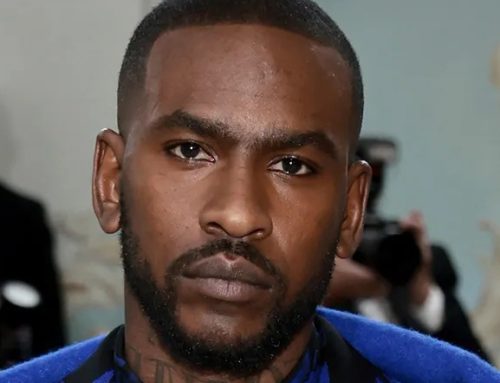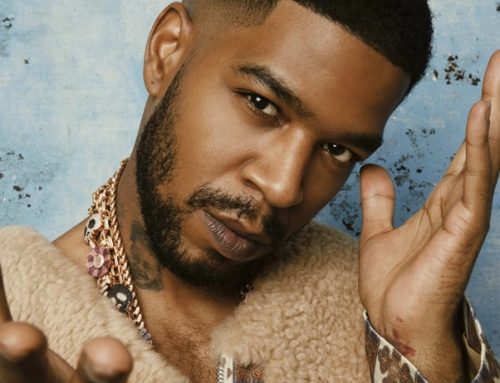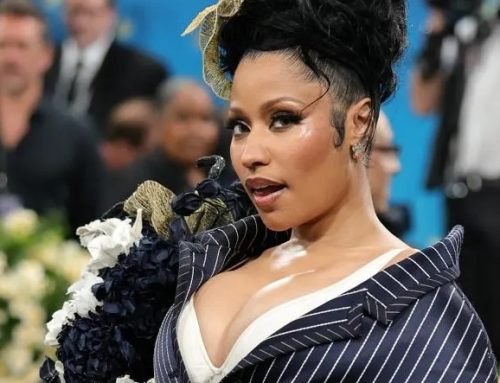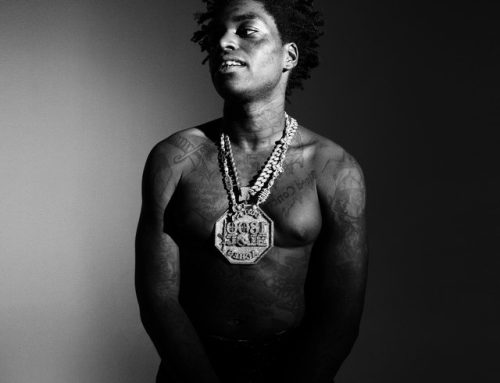The rapper has been in jail for two years on RICO charges that have implications for rap music and Atlanta’s criminal justice system.
It’s been two years since Young Thug and 27 others were indicted on Racketeer Influenced and Corrupt Organizations (RICO) gang charges in Atlanta and more than five months since the state of Georgia began presenting its case against six of the defendants. To say the trial, which is already the longest in Georgia history, has been lengthy and full of complications would be an understatement.
It’s a case that has garnered national attention because its star co-defendant, Jeffery Williams, aka Young Thug, is accused by Fulton County prosecutors of co-founding and leading the gang Young Slime Life. The indictment alleges a number of crimes starting in 2013, just a year before the rapper first entered the Billboard Hot 100 with songs such as “Stoner” and “Lifestyle.” Thug’s charges include conspiracy to violate RICO, participation in criminal street gang activity, violation of the Georgia Controlled Substances Act and possession of a machine gun.
In addition to Young Thug, several other rappers signed to his record label Young Stoner Life were charged in the indictment. Gunna, whose real name is Sergio Kitchens, and Slimelife Shawty, whose name is Wunnie Lee, were both charged with one count of conspiracy to violate RICO and negotiated plea deals in the case in December 2022. Yak Gotti, whose real name is Deamonte Kendrick, remains on trial alongside Young Thug and is facing a count of murder and conspiracy to violate RICO.
During opening arguments last November, Fulton County Chief Deputy District Attorney Adriane Love repeatedly referred to Young Thug as “King Slime” and said, “The evidence will show that the members of YSL knew who their leader was, and they knew the repercussions of not obeying him.” In an indictment that spans more than 60 counts and 191 overt acts, prosecutors allege that members of Young Slime Life committed a number of crimes ranging from armed robbery to attempted murder and murder.
From the early 2010s until today, Young Thug has risen to become one of the most influential rappers of his generation, earning three Billboard Hot 100 No. 1s and one Grammy. The YSL indictment alleges that while the rapper was rising to prominence globally, he was also leading a criminal street gang and authorizing a number of violent crimes.
Thug isn’t the first rapper to recently be charged in a RICO case. In 2019, 6ix9ine was sentenced to two years after pleading guilty to racketing conspiracy and eight other charges. In 2021, rapper YFN Lucci faced RICO charges in the same Fulton County courthouse as Young Thug before he negotiated a plea deal earlier this year.
The YSL trial has reignited conversations about the use of rap lyrics in criminal cases. During opening arguments, Love said prosecutors “chased the murders and found the lyrics,” not vice versa. She referenced the lyrics “hundred rounds in a Tahoe,” alleging that Young Thug was referencing the murder of a rival gang member who was standing next to a Chevy Tahoe. Prosecutors say Thug rented the 2014 Silver Infiniti Q50 sedan that was used in the January 2015 drive-by shooting that killed Donovan “Nut” Thomas.
Defense attorneys such as Doug Weinstein, who represents Yak Gotti, have repeatedly argued that the use of lyrics in this way is a harmful practice. “You have a situation where they’re bringing in lyrics, they are using them out of context, they are reading into the lyrics whatever they want to read into them and they’re taking them separate and apart from their artistic use. They’re assuming whenever they’re bringing in these lyrics that everything that any of these guys rap about is autobiographical,” he tells Billboard. “It’s just outrageous.”
Music executives have also been vocal about their support of the rapper as well as their criticisms about the use of lyrics in the case. In addition to creating the Protect Black Art Petition, both 300 Entertainment’s Kevin Liles and Atlantic Music Group’s Julie Greenwald have visited the Fulton County Courthouse in support of Young Thug. “If this were country music, rock music…we wouldn’t be here,” Liles told reporters outside of the courtroom before the first day of opening arguments in November.
“Artists and labels should not underestimate the precedent the Fulton County District Attorney has created by taking the weaponization of lyrics mainstream,” Liles said in a new statement to Billboard. “When obviously figurative lyrics like ‘ready for war like I’m Russia’ are claimed to be ‘an overt act in furtherance of conspiracy,’ no artist in any genre is safe. This case is a radical assault on creative freedom.”
Throughout the trial, Young Thug has garnered support from a number of artists, including Drake, Killer Mike and The 1975’s Matty Healy. Recently, Chance the Rapper referred to the trial as a “circus” on Instagram and said he wished Young Thug was able to receive bond during the lengthy process. “For my birthday I just wish my brother was home with his family,” he wrote. The singer Mariah the Scientist, who is dating Young Thug, was a regular in the courtroom before her tour started in February. Quavo also sat in on the trial one day in April.
Despite an already lengthy process, this case is likely to last at least through the remainder of 2024. To date, prosecutors have called more than 60 witnesses to testify to a number of overt acts, but in early April they told Judge Ural Glanville they still had about 150 remaining witnesses on their list. At that time, they estimated they’d need roughly 120 trial days to complete their case, but this didn’t account for administrative days or cross examinations by the defense. Testimony in the trial has also notably been delayed several times for a number of reasons, including the behind-bars stabbing of co-defendant Shannon Stillwell in December and, in late April, a juror’s medical emergency.
“From the absence of bond to the extraordinary weaponization of creative expression, this case has always been an outrage. Now as the longest trial in Georgia history and with no end in sight, it’s also become a farce,” Liles said about the ongoing trial. “I’m looking forward to embracing Jeffery when he is finally granted his freedom.”
“I’ve been practicing for over 25 years, most of that time in federal court. I’ve been involved in significant civil cases, for example, involving up to a dozen or more [corporate] defendants,” Weinstein says. “I’ve never seen any case like [this]. I’ve never seen any case drag out for this expected length of time.” The defense attorney said he believes the state’s witness testimony has become “duplicative” and “unnecessary.” He estimates the state’s case is “going to drag well into 2025.”
“And that’s before we present our case,” Weinstein adds, referencing that all six defendants will then be allowed to call their own witnesses.
Anthony Michael Kreis, assistant professor of law at Georgia State University, says retaining the attention of the jury might provide incentive for defendants to make their cases quickly when it’s their turn, however. “I don’t think the state, for whatever reason, seems to acknowledge so far that the longer this drags out, the more irritated your jurors are going to be that you brought this case in the first place,” he says. It took nearly 10 months to select a jury for this trial, after many of the prospective jurors said sitting on a trial for six months to a year would be a hardship. Jurors in this case are paid $25 dollars per day by Fulton County and are unable to work during the trial.
Even beyond the impact the trial has had on the rap community, the prosecution of Thug and the other co-defendants has implications for the rapper’s hometown, too. Defense attorney Suri Chadha Jimenez says the trial has “shut down the entire court system in Georgia,” noting he’s had several instances where a case was delayed because the defendants’ attorney was stuck in court for the YSL trial. And Weinstein says this lengthy trial is expensive for taxpayers, too. He estimates the sheriff deputies involved with the case “easily” work 60 hours per week due to the time it takes to transport defendants to court and their work providing security within the courtroom. “You’re looking at a lot of overtime,” he says. “That’s just the deputies. That’s not all of the other expenses of this case.”
The case has also been seen by many as a litmus test for how the Fulton County RICO case against former president Donald Trump might play out. “I think there’s a lot of lessons that the DA’s office is going to have to learn from this case for the Trump case,” Kreis says. “If the election trial operates anywhere near as inefficiently and [is] bungled as often as this trial has [been], I think they’re going to be very sorry. And there’s going to be a lot of political backlash.”
Jimenez was previously a Fulton County prosecutor before he began representing one of the defendants in the YSL trial. Prosecutors dropped the charges against Cordarius Dorsey, aka YSL Polo, before opening arguments began. Still, the defense attorney says trying cases on behalf of the state helped inform his opinion that Georgia’s broad RICO statute has allowed for its overuse. “I think RICO is a weapon of last resort to go after true mob bosses for organized crime that are operating in plain sight and they’re doing things that seem legit, but when you put them in context, they are predicate acts of a bigger organization [and] conspiracy. We ain’t got that in Atlanta. We don’t have any crime bosses. If we do, they’re probably developers or politicians. But they’re definitely not the guys out here robbing houses and shooting people. That’s not organized crime,” the defense attorney says. “If you have a murder, prove a f–king murder. It will take you a week [to try] and the person will go away for life.”
Jimenez was working for the district attorney’s office during the time in which many of the incidents in this case took place and he prosecuted Walter “DK” Murphy for an alleged attempted murder that’s listed as an overt act in this indictment. (Murphy had been released from prison on that charge nearly three months before he was arrested and charged with conspiracy to violate RICO in this case. He subsequently accepted a plea deal and was released in December 2022.)
The attorney believes a part of the reason this trial is taking so long is because prosecutors have long been struggling to prove some of their allegations. “These are instances that didn’t get prosecuted 10 years ago for a reason. They didn’t have it,” he says. “So now, what they’re doing is throwing everything at the wall and seeing what sticks.”
With several months left of the prosecution’s case alone, it’s not yet clear how jurors are processing the evidence they’re receiving. Young Thug’s bond has been repeatedly denied, however, meaning he’ll remain in jail – effectively halting his career – at least until a verdict is reached.






